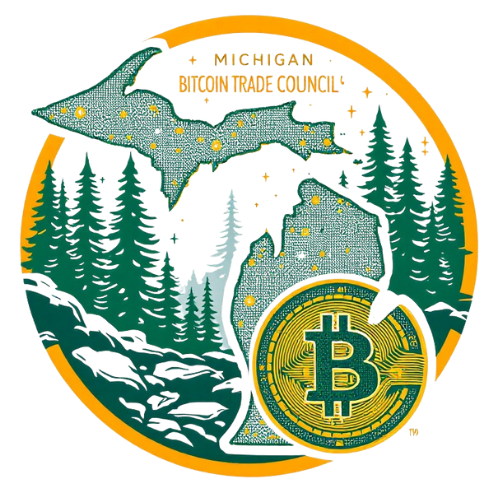Glossary
Mining – Mining is a process to create new Bitcoin. Similar to how gold is mined from the ground, Bitcoin a.k.a. “Digital Gold” is mined through a randomized process via computer networks. Mining occurs through a specialized computer that writes a new block of transactions on the Bitcoin blockchain. In reward for writing the next block of transactions, miners get paid in newly-created Bitcoin. Mining is the only way that new Bitcoin can be created, which results in a massive competition and financial incentive to write the next block.
Block – A block contains a group of bitcoin transactions. A new block of transactions are approved roughly every ten minutes.
Blockchain – The blockchain is a ledger that lists the entire history of all Bitcoin transactions that have ever occurred. Transactions get added to the chain in groups called blocks.
Halving – Every four years the reward that bitcoin miners get for mining a bitcoin block gets cut in half. Today, every miner who mines a block gets 3.125 bitcoin. In four years, the reward for a bitcoin miner will be 1.5625 bitcoin. The halving rule forces less and less Bitcoin into the world until the maximum supply of bitcoin is reached (21 million). This is how the Bitcoin computer code limits inflation.
Wallet – A wallet enables you to send, receive and store your bitcoin. Technically, you don’t store bitcoin in one. The wallet stores your private key.
Private Keys – Your private key enables you to unlock your Bitcoin out of the blockchain and send it to another person. If you don’t independently manage your private key, you cannot benefit from the revolutionary monetary freedom that Bitcoin offers.
Exchange – Location where you can exchange US Dollar for bitcoin and vice versa. Examples include Coinbase, Cashapp, Binance, etc. The exchange holds your private key and essentially owns your Bitcoin. Get your Bitcoin off exchanges and achieve self-custody to protect yourself and obtain true monetary freedom.
Self-Custody – This is the process of taking your private key off of an exchange or other centralized institution and managing your own private key. Self-custody ensures that only you have access to the key so only you can move your Bitcoin around on the Bitcoin blockchain. The most secure way to self-custody your private key is on a hardware wallet. Hardware wallets look like a USB and they are physical devices designed to protect your private key.
Bitcoin Transaction – One person sends Bitcoin from their wallet to another person’s wallet. The user has to pay a small fee to the network to send their transaction. This is like how credit cards have a 3% fee to conduct a purchase or how mail needs to be stamped before it can be sent.
Node – This is a computer that validates that all the blocks mined on the Bitcoin blockchain are valid. Nodes are essentially the police officer of the Bitcoin network, working to ensure that all Bitcoin miners are playing by the rules of the computer code. There are over 20,000 nodes in operation around the world enforcing the Bitcoin computer code. Nodes also keep an up-to-date copy of the blockchain. You would need to destroy all of the nodes in the world to delete the history of Bitcoin. The decentralized nature of these nodes makes Bitcoin essentially unhackable and incorruptible.
ETF – Stands for Exchange Traded Fund. These companies can be found on the New York Stock Exchange and are growing more popular as Bitcoin’s value rises. ETFs are a financial instrument that is formed after a company buys a large quantity of Bitcoin. ETFs provide a non-direct way for people to get exposure to Bitcoin without having to worry about any of the technical aspects of owning Bitcoin yourself. The ETF acts as an intermediary between the investor and Bitcoin.
CBDC – Stands for Central Bank Digital Currency. Its goal is for every citizen to have a bank account tied directly to the federal government. Under a CBDC regime, government can view all your transactions, silence your transactions, remove money out of your account on a whim, directly tax your account, freeze your account, and so forth. This is the ultimate Orwellian tool for a corrupt government to control its citizens. Over 100 countries are researching, developing, testing or implementing CBDCs. Bitcoin and Bitcoin alone is the enemy of the CBDC.
Smart Contracts - Bitcoin smart contracts are self-executing agreements written in computer code that run autonomously on the Bitcoin network. Smart contracts facilitate more complicated Bitcoin transactions that can enhance security and flexibility for advanced levels of usage on the Bitcoin network.
Ordinals and Inscriptions – It is possible to attach any type of data file to a Bitcoin transaction. Bitcoin users have attached pictures, articles, videos, audio and other electronic data files to Bitcoin transactions. When the transaction gets approved, that data file will stay on the Bitcoin blockchain forever. This is why people say Bitcoin is the eternal truth machine because you can permanently save information for eternity on it.
